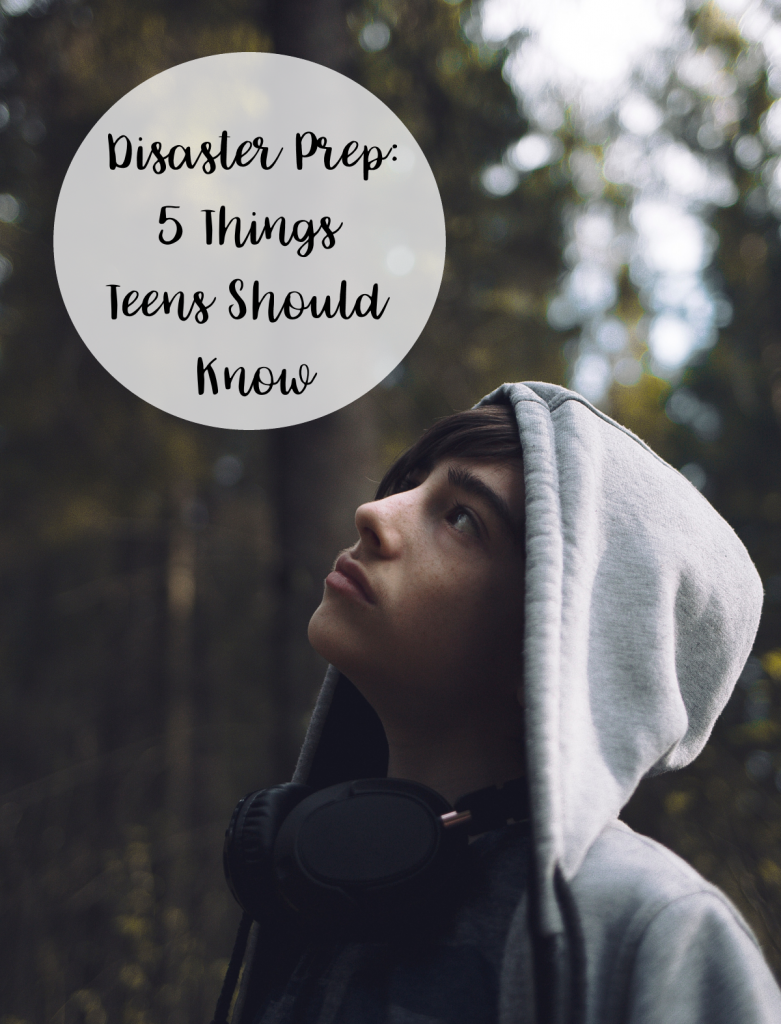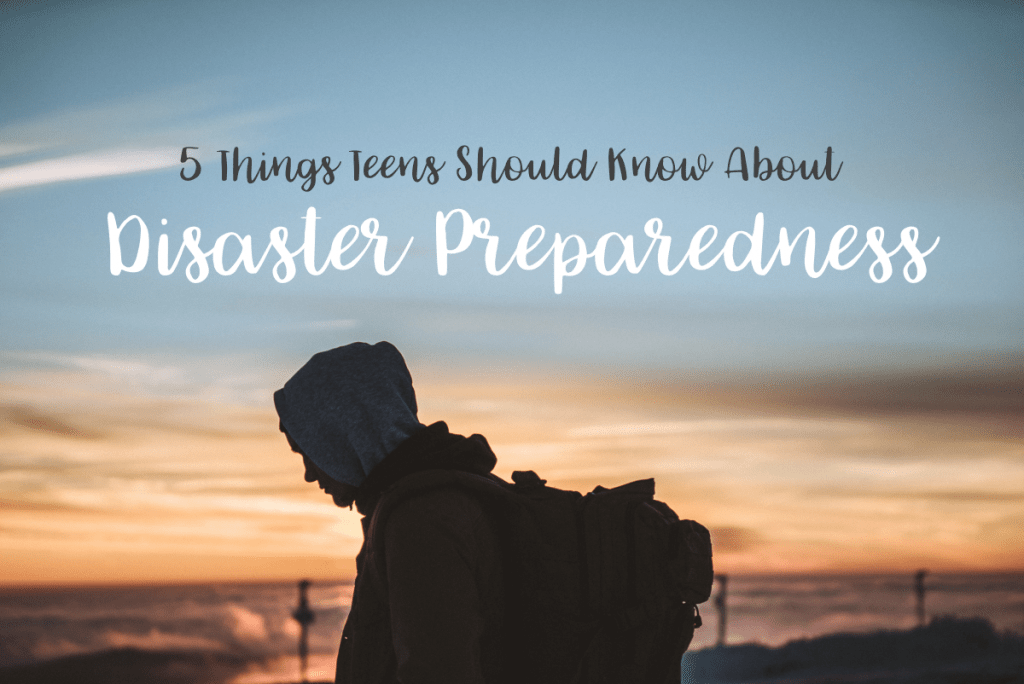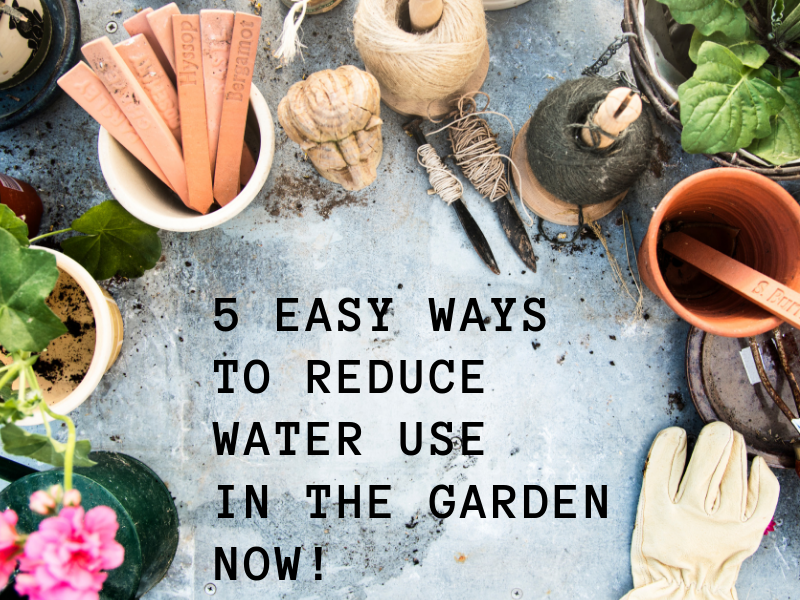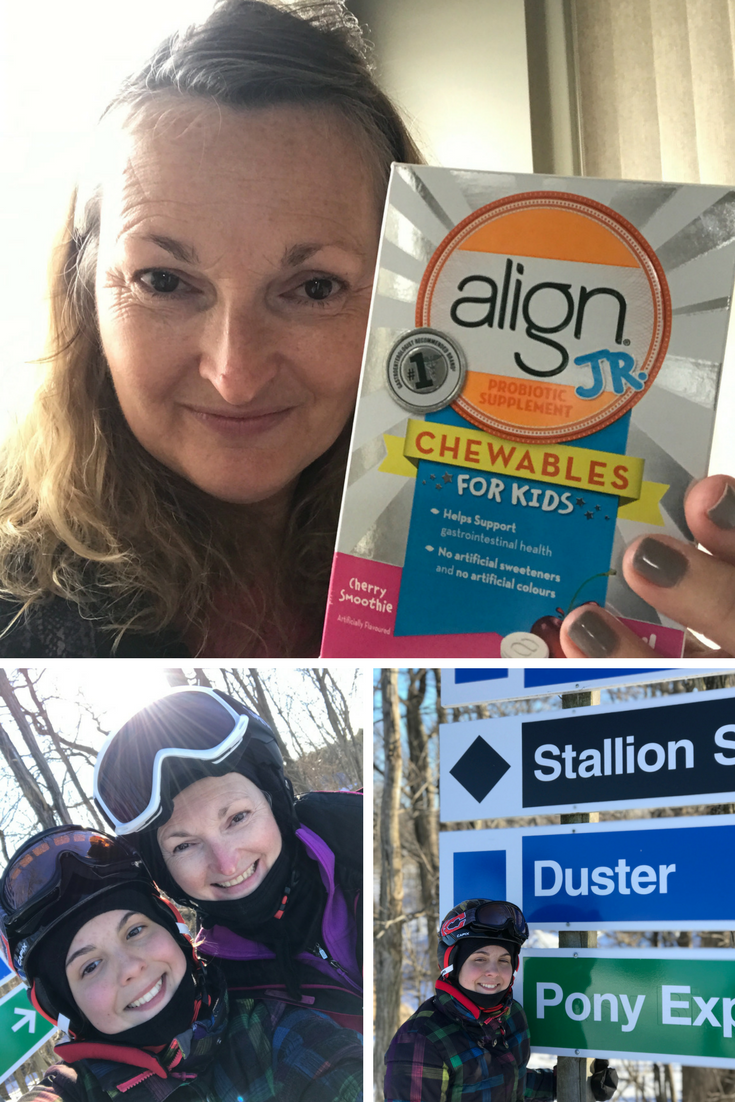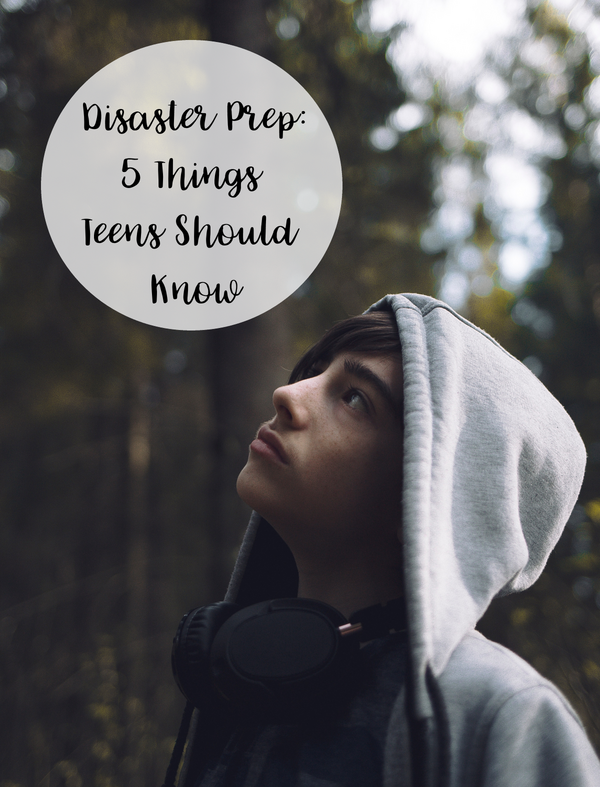
Disaster Preparedness – 5 Urgent Things Teens Need to Know Now
Because natural disasters and emergencies can happen at any time without warning, the best we can do is be prepared. Disasters don’t just affect the adults but children as well. Unlike toddlers, teenagers can actually be a great resource during an emergency. Whenever possible, they should be involved in disaster preparedness to better equip them on how to behave and respond to such unfortunate events.
Here’s what every teen should know about emergency preparedness.
How to Handle Different Weather-Related Emergencies
Every teenager should be aware of the various weather disasters and how they should act during each:
Tornado – Run to the lowest level of the building and stay away from outside walls, windows and doors. In case you are outside and away from buildings, lie down in a ditch while protecting your head.
Thunderstorm – Stay indoors and avoid using items that plug into electrical outlets. Don’t use running water since faucets can conduct electricity.
Earthquake – Practice the ‘Drop, Cover and Hold On’ method and learn to identify the safe places in every room.
Hurricane – Avoid glass windows and doors.
Flooding – Avoid flooded areas. Six inch of moving water is enough to knock you over. The flood water may also be contaminated or contain sharp objects.
Staying Connected with Your Family
Mobile phones may not work during a disaster. How will a teenager contact friends and family to let them know that they are alright? They should figure this out ahead of time to be better prepared when the worst happens. It might be easier to make long distant calls. Red Cross recommends having a common out of area emergency contact for all family members. Having a list of emergency contacts and local emergency numbers may also come in handy during a disaster.
Learn Basic Emergency Skills
An adult may not be around every time there is an emergency. Teens should know basic emergency skills since they might need to help out or save a situation. Even the little things can make a huge difference like learning how to use a fire extinguisher or performing basic first aid. You never know, they might help save a person’s life when it is least expected.
Away From Home
Teens are often social. They might not be at home when disaster strikes. They should be well prepared for such situations. For example, they should know how to contact parents of friends for help. The basics (evacuation routes, what to avoid, etc.) should also apply.
Disaster Kit
Having an emergency kit is essential. The emergency supply list should include all the necessities they may need to survive during an emergency. The kit should contain food, water, first aid equipment.
Other emergency supplies that they might need include flashlights, duct tape, liquid bleach, crowbar, etc. Keep a kit packed. You can’t claim to have a kit when all the items are scattered all around the house. Have everything packed nicely and ready to go. Make sure teens know where the kit is, what the items are for, and how to use them.
Disasters unfortunately happen sometimes. Don’t sit back and hope for the best. Survival during an emergency sometimes depends on our level of disaster preparedness. Teenagers are likely to face a lot of challenges during emergencies. But if they are physically and mentally prepared, they can cope with the situation better and even be counted on to help.
This post contains affiliate links. I appreciate it if you buy from this site via Amazon and I receive a small commission.


